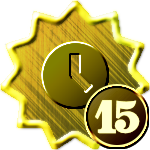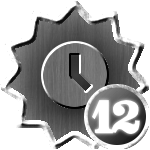Hi, I hope that the piano section is the right place to put this, if not... well...sorry.
It's been a long time since I've actually added anything that's been finished here, and I know that one major problem with my composition has been in being interesting harmonically (let's not get into the counterpoint issues, but the last of my finished works that I uploaded- a flute concerto... was kinda glued to g minor beyond all measure of reason).
So, now that I've had time to start composing again, I've decided to start back at writing short pieces to get to grips with harmony and counterpoint so that I can deal with larger works better.
With that in mind, (sorry for the long intro), I wrote this minuet for keyboard earlier this morning, and then edited it as best as I could. If someone could review it, that would be great.
It has a relatively simple theme, and as far as I wrote it it's a 16-measure minuet, so it's a fast listen. I'm still a little worried that it's somewhat glued to C major, but as a 16-measure work I hope that that can be somewhat expected.
If anyone has any advice on it, it would be well-taken.
Minuet in C Major.MUS
Minuet in C Major.MID




